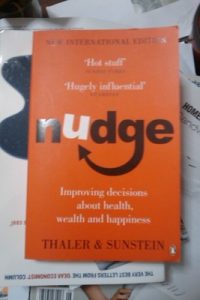Blog by Lara Gordge, winner of the Policy & Politics 2021 undergraduate prize to the student achieving the highest overall mark on the ‘Understanding Public Policy’ unit at the School for Policy Studies
Originally published on the Policy and Politics Blog.
My name is Lara and I’m currently about to enter my final year of the BSc Social Policy with Criminology undergraduate degree at the School for Policy Studies, University of Bristol (home of the Policy & Politics journal). Winning the student prize for the ‘Understanding Public Policy’ unit came as quite a surprise, but I’m thrilled and honoured to have been chosen. All of my peers are brilliant thinkers and so very talented, so to win has given me a lot of confidence in my academic ability.
One of the main things I loved about the ‘Understanding Public Policy’ unit was the ability to write about such a broad variety of topics. One of the essays I enjoyed the most focused on two key questions around power within policymaking in the realm of behavioural economics – who is given the authority to make decisions on behalf of the greater good, and why are those decisions considered the right ones to make?
Since behavioural economics focuses on the presumed irrationality of human beings and how good decision making may be inhibited by different social or psychological factors, my essay relies on the principle that people’s choices are largely predictable and manufactured by their environment (coined by Thaler and Sunstein (2003, 2008) as choice architecture.) Therefore, I discuss the ways in which policymakers exploit the biases that are inherent in us all in order to subconsciously ‘nudge’ individuals towards certain choices. I focus on herding and status-quo bias as two main examples of choice architecture, largely due to the ease of which policymakers are able to manipulate inexorable defaults and the human tendency to conform.

However, while writing this essay, discovering how easily our ability to make informed decisions can be undermined – even coerced – by those in power changed the overall tone and focus of my writing. I explored the shortcomings and criticisms of behavioural economics, focusing largely on the idea that nudges could be used to influence negative choices just as easily as positive ones depending on the intentions of the policymakers.
As behavioural economics relies on the notion that humans are imperfect and make flawed decisions, I make the assumption that surely those with the power to implement policy interventions are also primed to make bad decisions. Schmidt (2017) adds here that the ability to systematically nudge people allows those with the power to foist their will onto others, while possibly holding unobjective views regarding what constitutes a ‘bad’ decision.
Ultimately, my essay poses one major debate: who is the best judge of a ‘good’ decision – the individual, or the state? I conclude by stating that on the one hand, nudging can be an inexpensive method of encouraging healthy behaviour changes and creating small-scale, meaningful benefits at the individual level. But concerns over behavioural economics becoming too paternalistic remain – as exploiting human imperfection without the consent of the people will always be considered by some to be an immoral infringement on individual liberty.
I hope to be able to explore these important issues further in the future, but in the meantime, I will continue to read others research in the area, such as the recent special issue on nudge published in Policy and Politics. You can download the introductory article for free here.
If you enjoyed this blog post, you may also be interested to read:
Special Issue: Volume 49, Number 1, 2021
Beyond nudge: advancing the state-of-the-art of behavioural public policy and administration
Guest edited by Benjamin Ewert, Kathrin Loer and Eva Thomann


